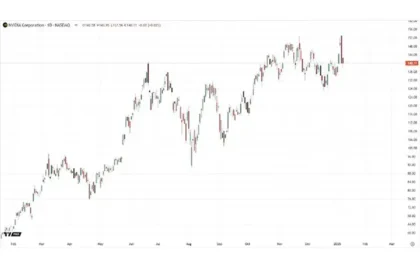In today’s hyper-competitive business setting, virtually every company strives to become a data-centered business, which leads them to invest the majority of their IT budget in a big data strategy. As a massive amount of new data is being generated every day, growing numbers of businesses are trying to enhance the usability of these data. But the most significant challenge is to figure out the market interest of big data. However, knowing the relationship between data and skill set is crucial for businesses looking to harness the power of big data.
In a survey, only 18 percent of organizations find that they have the expertise available to collect and use information efficiently. In comparison, only 19 percent are optimistic that their insight-gathering processes contribute directly to the success of sales. Data is the new oil for companies; it doesn’t matter what size it is. Data science plays an essential role in making this data useful and actionable for the company stakeholders. As other tools, such as dashboards and reporting on business intelligence, benefit from big data, data science can reveal its actual value.
Make the Most Out of Big Data
Most IT administrators lack a full understanding of the available data with which they can get benefits from big data. The lack of tools and ideas about what to do with this data once they are gathered also makes it difficult to derive value from the business. In this setting, data scientists or analytics managers should proactively provide strategies and alternatives with greater data appreciation, and also understand the market and have a clear view of the goals.
When it comes to evaluating the data which needs to be translated for generating more business value, identifying the market impact based on analytical insights involves putting together the right group of people with enhanced expertise and then creating the appropriate ties between them. Furthermore, exploiting the hierarchy of data determines that the real meaning of the data is in information and comprehension. This means that companies need the analytical skills and capabilities to identify and apply to business operations and the trends contained in the data.
Integrating Big Data into Business Value
Big data and advanced analytics technologies offer unparalleled visibility into company processes and consumers, not only allowing companies to improve operating performance, service rates, sales, and business models but also improving customer centering. Nonetheless, companies need to define the fundamental business issues and create a plan to classify the information before deep-diving into the data to harvest high value.
Since data can be risky and tempting, any improvements in the data strategy would require commitment from top-level leaders for financial investment and room for analysis over a few initial projects. Companies would also need to achieve business goals and scale their output for analyzing the data. This is also important that data and information have to be applicable to a specific purpose. Therefore, organizations need to decide what data would be necessary so that they can capture and archive it. Data sources can be internal or external, public or private access, formal or informal, qualitative or quantitative. When companies identify data, a collaborative task force of market domain experts and data scientists needs to be formed to find and prioritize the highest value projects. In the event of an absence of in-house data science expertise, businesses must find a trusted partner to execute the first projects hand in hand with stakeholders in the sector.










